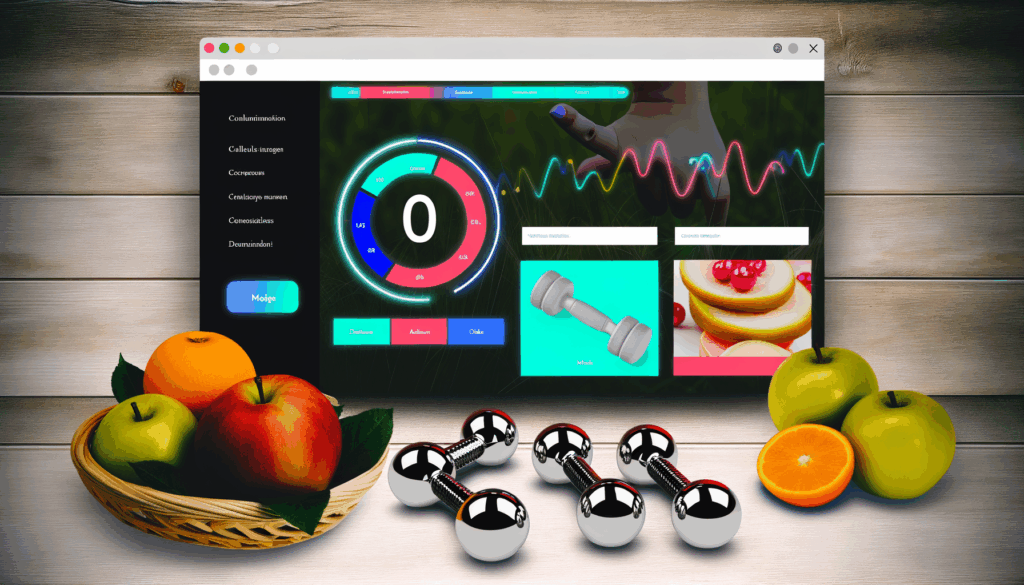In today’s fast-evolving healthcare landscape, health professionals are constantly seeking tools that not only enhance their efficiency but also deepen client engagement and improve outcomes. Among the most transformative innovations are health calculators—specialized digital tools designed to streamline complex calculations, personalize recommendations, and empower both providers and their clients. From calorie calculators tailored for professionals to comprehensive nutrition calculators and beyond, these resources are redefining what it means to deliver evidence-based, client-centered care.
Why Health Professionals Need Specialized Calculators
At the heart of every successful health intervention is accuracy. Whether calculating daily caloric needs, macronutrient distributions, or therapeutic doses, even minor errors can have significant consequences for client health. Manual calculations are not only time-consuming but also prone to mistakes, especially in high-pressure clinical environments. This is where purpose-built calculators for health professionals shine—offering rapid, precise results that support safer, more effective care.
For example, tools like the DRI Calculator from the USDA allow dietitians and nutritionists to generate personalized daily nutrient recommendations based on the latest scientific guidelines. Similarly, advanced calorie calculators, such as those offered by Calorie Calculator Cloud, enable professionals to create bespoke meal plans that align with each client’s unique metabolic profile, activity level, and health goals. These platforms are not just about numbers—they’re about building trust through demonstrable expertise and personalized attention.
Key Benefits of Using Health Calculators in Practice
Integrating calculators into your workflow delivers a host of advantages that extend far beyond simple arithmetic. Let’s explore some of the most impactful benefits:
- Enhanced Accuracy: Health calculators eliminate the risk of human error in complex equations, ensuring that every recommendation is based on the most current, evidence-based formulas. This reliability is crucial when determining medication dosages, nutritional needs, or risk assessments.
- Time Savings: By automating routine calculations, professionals can dedicate more time to client interaction, education, and motivational support—key factors in achieving lasting behavior change.
- Streamlined Workflows: Calculators reduce paperwork and manual data entry, allowing seamless integration with electronic health records and other practice management systems. This cohesion promotes efficient, collaborative care.
- Improved Client Engagement: Interactive tools, such as nutrition calculators and calorie trackers, empower clients to take an active role in their health journey. Visualizing progress and understanding the “why” behind recommendations fosters motivation and adherence.
- Data-Driven Decision Making: Advanced calculators provide instant access to clinical scores, risk assessments, and predictive analytics, supporting more informed and timely interventions.
Real-World Applications: Case Studies and Examples
Consider the case of a busy dietitian working with clients who have varied health conditions—diabetes, cardiovascular disease, obesity, and more. Using a professional-grade calorie calculator, the dietitian can quickly generate individualized meal plans that account for each client’s age, weight, activity level, and medical history. This not only improves the accuracy of dietary advice but also allows the practitioner to focus on counseling and behavior change strategies, rather than manual math.
Another example is the use of clinical calculators in primary care settings. Tools like MDCalc provide instant access to hundreds of validated clinical decision aids, from risk scores to dosing algorithms. Physicians and nurse practitioners rely on these resources to make rapid, evidence-based decisions at the point of care—enhancing both safety and efficiency.
In the corporate wellness space, group health calculators help employers and insurers estimate the potential return on investment for lifestyle intervention programs. For instance, the CDC’s diabetes prevention cost calculator enables organizations to model the health and financial benefits of supporting employee wellness initiatives.
Choosing the Right Tools for Your Practice
With so many options available, selecting the right health calculator is critical. Here are some factors to consider:
- Evidence-Based Formulas: Ensure the calculator uses up-to-date, scientifically validated equations. For nutrition professionals, tools that incorporate Dietary Reference Intakes (DRIs) are essential.
- Customizability: Look for platforms that allow you to tailor outputs to each client’s unique needs. Calorie Calculator Cloud’s premium plans, for example, offer advanced customization features for professionals.
- Integration Capabilities: The best calculators integrate smoothly with your existing practice management systems, reducing administrative burden.
- User Experience: A clean, intuitive interface enhances both professional efficiency and client engagement.
- Mobile Accessibility: On-the-go access via smartphone or tablet ensures you’re always equipped to deliver high-quality care, wherever you are.
Popular Health Calculator Platforms for Professionals
Here’s a snapshot of leading tools trusted by health professionals worldwide:
- Calorie Calculator Cloud: A comprehensive solution for nutrition experts, featuring customizable calorie and macronutrient calculators, meal planning tools, and client engagement features.
- MDCalc: A leading clinical calculator app with hundreds of evidence-based medical decision tools, widely used by physicians, nurses, and allied health professionals.
- USDA DRI Calculator: An authoritative resource for generating personalized nutrient recommendations based on the latest National Academies guidelines.
- CDC Diabetes Prevention Cost Calculator: Designed for employers and insurers to model the impact of lifestyle interventions on population health and costs.
- GlobalRPH Clinical Calculators: A library of specialized medical calculators for dosing, conversions, and clinical assessments.
Beyond Numbers: Engaging Clients with Interactive Tools
The true power of health calculators lies not just in their computational ability, but in their capacity to engage clients as active participants in their care. Interactive nutrition calculators, for example, allow clients to explore how different food choices impact their daily goals, making abstract concepts tangible and actionable. When clients can visualize their progress—whether through calorie tracking, macronutrient breakdowns, or weight loss projections—they’re more likely to stay committed and motivated.
Moreover, health professionals can leverage these tools during consultations to facilitate collaborative goal-setting and education. By walking clients through the calculations and explaining the rationale behind each recommendation, practitioners build trust, enhance understanding, and empower clients to make informed choices.
Integrating Calculators into Your Marketing and Lead Generation Strategy
For health professionals and influencers, calculators are not just clinical tools—they’re powerful marketing assets. Offering free, interactive calculators on your website or social media channels can attract prospective clients, demonstrate your expertise, and showcase the value of your services. For example, embedding a custom calorie calculator on your site allows visitors to experience your approach firsthand, increasing the likelihood they’ll reach out for personalized coaching or consulting.
Similarly, sharing calculator-driven content—such as “How Many Calories Do You Really Need?” or “Macronutrient Calculator for Optimal Performance”—positions you as a trusted authority and drives organic traffic. By combining educational content with actionable tools, you create a seamless pathway from discovery to conversion.
The Future of Health Calculators: Trends and Innovations
As technology advances, health calculators are becoming even more sophisticated. Emerging trends include:
- AI-Powered Personalization: Machine learning algorithms are enabling calculators to deliver hyper-personalized recommendations based on a wider array of biometric and lifestyle data.
- Integration with Wearables: Sync calculators with fitness trackers, smart scales, and other IoT devices for real-time, dynamic adjustments to nutrition and activity plans.
- Telehealth Compatibility: Cloud-based calculators support remote consultations, making it easier to deliver care to clients anywhere in the world.
- Population Health Analytics: Group-level calculators help public health professionals and employers identify trends, target interventions, and measure outcomes at scale.
Conclusion: Elevate Your Practice with the Right Tools
Health calculators are no longer optional extras—they’re essential instruments for modern health professionals. Whether you’re a dietitian, physician, wellness coach, or fitness influencer, leveraging the right calculators can transform your practice, deepen client relationships, and drive measurable results.
To get started, explore platforms like Calorie Calculator Cloud, which offers tailored solutions for nutrition professionals seeking to enhance accuracy, efficiency, and client engagement. Discover the full range of features and pricing plans to find the perfect fit for your needs.
By embracing these innovative health industry tools, you position yourself at the forefront of evidence-based care—delivering personalized, impactful support that helps clients achieve their goals and builds your reputation as a trusted expert.
Ready to see the difference a professional-grade calculator can make? Try Calorie Calculator Cloud today and experience the future of health and nutrition practice.








